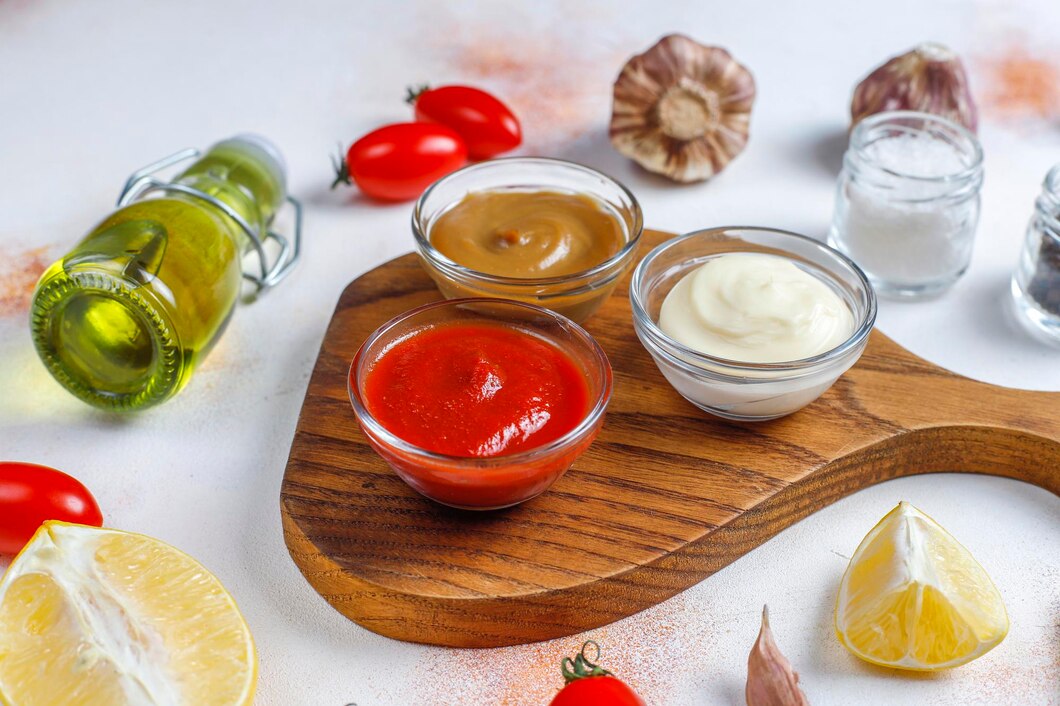Lemon juice is a common ingredient in marinades and dressings due to its tart, refreshing flavor and tenderizing properties. However, if you find yourself out of lemons or simply want to try something new, several substitutes can provide similar acidity and flavor complexity. Here are five alternatives to lemon juice that you can use in your culinary creations.
1. Vinegar
Types:
- White Wine Vinegar
- Apple Cider Vinegar
- Balsamic Vinegar
Usage:
Vinegar is an excellent substitute for lemon juice, offering a similar tangy acidity. White wine vinegar and apple cider vinegar work particularly well in salad dressings and marinades, as they mimic the brightness of lemon juice. Balsamic vinegar, with its slightly sweet and robust flavor, can add depth to dressings and marinades but should be used sparingly to avoid overpowering other flavors.
Tips:
- Start with a 1:1 substitution ratio, adjusting to taste.
- Consider the flavor profile of the vinegar to ensure it complements the dish.
2. Lime Juice
Usage:
Lime juice is the closest substitute for lemon juice, providing a similar acidic and citrusy taste. It works well in almost any recipe that calls for lemon juice, including marinades for seafood and dressings for green salads. Lime juice also pairs wonderfully with dishes that have a Latin or Asian flair.
Tips:
- Use an equal amount of lime juice in place of lemon juice.
- Lime zest can be added to enhance the citrus flavor.
3. Orange Juice
Usage:
Orange juice is a great substitute when a milder citrus flavor is desired. It adds a touch of sweetness along with acidity, making it ideal for dressings and marinades that benefit from a hint of natural sweetness. Use orange juice in dishes that pair well with a sweeter citrus note, such as chicken or pork marinades.
Tips:
- Use a slightly higher amount than lemon juice to match acidity levels, or combine with a small amount of vinegar to boost tartness.
- Consider adding orange zest for an intensified flavor.
4. Citric Acid
Usage:
Citric acid, available in powdered form, can be used to replace the acidity of lemon juice without adding extra liquid. It’s particularly useful in dry rubs or when you need to maintain the consistency of a marinade or dressing. Citric acid provides a sharp tang and is very potent, so a little goes a long way.
Tips:
- Use 1/4 teaspoon of citric acid per tablespoon of lemon juice as a starting point, adjusting to taste.
- Dissolve the citric acid in a small amount of water before adding it to recipes for even distribution.
5. Tamarind Paste
Usage:
Tamarind paste is a unique substitute that adds a rich, tangy, and slightly sweet flavor to marinades and dressings. It is widely used in Indian and Southeast Asian cuisines and pairs well with dishes featuring complex spice blends. Tamarind can enhance the flavor profile of meat marinades or serve as a base for exotic salad dressings.
Tips:
- Use tamarind paste sparingly, as it is highly concentrated; start with half the amount of lemon juice required.
- Adjust sweetness by adding a small amount of honey or sugar if desired.
Additional Considerations
When substituting lemon juice, consider the overall flavor profile and texture of the dish. Some substitutes may add sweetness or different notes that could enhance or alter the final taste. Experiment with combinations, such as mixing vinegar with a touch of orange juice, to create a balanced flavor that complements your dish. Always taste and adjust seasonings accordingly to achieve the desired result.
By exploring these substitutes, you can create delicious marinades and dressings without compromising on flavor. Each alternative brings its unique twist to the table, allowing for culinary creativity and innovation in your cooking.








